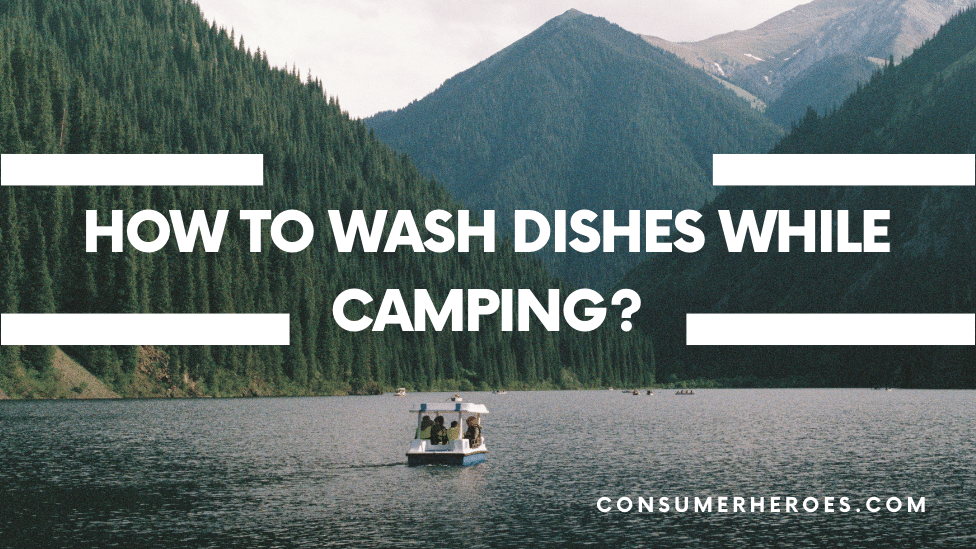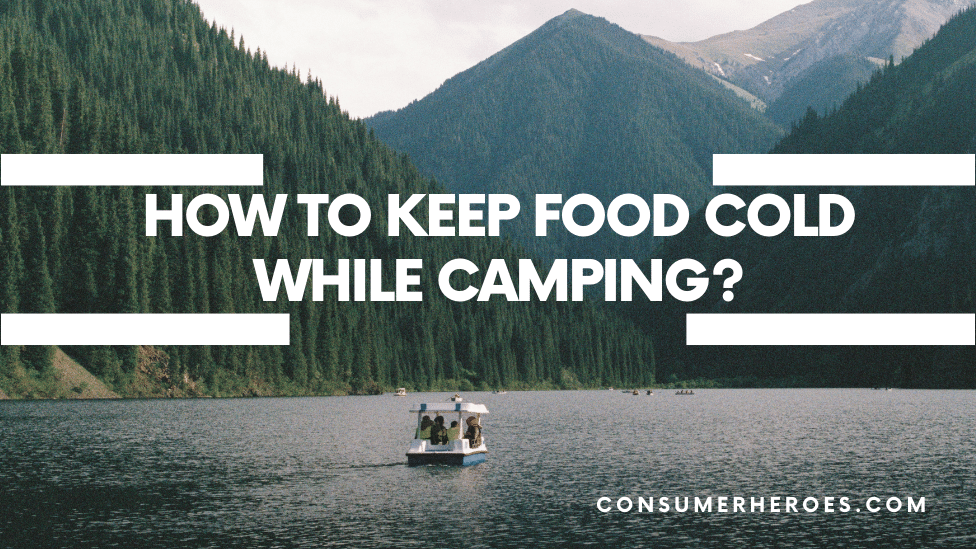Camping in the great outdoors can be a fun and rewarding experience, but it can also be a chilly one. When temperatures drop, it can be challenging to stay warm and comfortable while sleeping in a tent. However, with the right gear and preparation, it is possible to stay warm and cozy all night long.
One of the most important things to consider when camping in cold weather is your sleeping bag. It’s essential to choose a sleeping bag that is rated for the temperatures you’ll be experiencing. A bag that is too thin or not rated for the conditions can leave you shivering all night. Additionally, investing in a high-quality sleeping pad can make a significant difference in your warmth and comfort.
Another way to stay warm while camping is to layer your clothing. Wearing multiple layers traps heat between them, keeping you warmer than a single thick layer. It’s also important to keep your head, hands, and feet warm, as they are the areas most prone to heat loss. A warm hat, gloves, and thick socks can make a big difference in your overall comfort level.
Understanding the Basics
Importance of Staying Warm
When camping, it is essential to stay warm to avoid hypothermia, frostbite, and other cold-related illnesses. A warm body helps maintain energy levels and allows one to enjoy the camping experience.
Staying warm also helps with sleep quality. A warm body promotes restful sleep, which is crucial when camping. A good night’s sleep is essential for staying alert and energized during the day.
Risks of Not Staying Warm
Not staying warm while camping can lead to several risks. Hypothermia is a severe condition that can occur when the body temperature drops below 95 degrees Fahrenheit. It can cause confusion, lethargy, and even death in severe cases.
Frostbite is another risk of not staying warm. It occurs when the skin and underlying tissues freeze, resulting in damage to the affected area. It can lead to permanent damage and even amputation in severe cases.
Other cold-related illnesses, such as chilblains and trench foot, can also occur when not staying warm. These conditions can cause discomfort and pain, affecting the camping experience.
In summary, staying warm is crucial when camping to avoid cold-related illnesses and enjoy the camping experience fully.
Choosing the Right Camping Gear
When it comes to camping, staying warm is crucial for a comfortable and enjoyable trip. Choosing the right camping gear is essential for keeping warm and dry. In this section, we’ll cover the three most important pieces of gear to consider: selecting the right tent, the importance of a good sleeping bag, and appropriate clothing choices.
Selecting the Right Tent
A good tent is essential for staying warm and dry while camping. When selecting a tent, consider the following factors:
- Size: Choose a tent that is appropriately sized for the number of people who will be using it.
- Season: Look for a tent that is designed for the season in which you will be camping. A 4-season tent is ideal for winter camping, while a 3-season tent is suitable for spring, summer, and fall.
- Material: Look for a tent made from durable, waterproof material to keep you dry in wet conditions.
- Ventilation: Choose a tent with good ventilation to prevent condensation from building up inside.
Importance of a Good Sleeping Bag
A good sleeping bag is crucial for staying warm while camping. Consider the following factors when selecting a sleeping bag:
- Temperature rating: Choose a sleeping bag with a temperature rating appropriate for the conditions in which you will be camping.
- Insulation: Look for a sleeping bag with high-quality insulation, such as down or synthetic fill.
- Size: Choose a sleeping bag that fits your body size to prevent cold air from entering.
- Shape: Consider the shape of the sleeping bag; a mummy-shaped bag is ideal for retaining heat.
Appropriate Clothing Choices
Wearing appropriate clothing is essential for staying warm while camping. Consider the following tips:
- Layering: Wear multiple layers of clothing to trap warm air between layers.
- Material: Choose clothing made from wool or synthetic materials that wick away moisture.
- Headwear: Wear a hat to prevent heat loss through your head.
- Insulated footwear: Wear insulated boots or shoes to keep your feet warm and dry.
By selecting the right camping gear, you can stay warm and comfortable while enjoying the great outdoors.
Setting Up Your Campsite
Location Selection
Choosing the right location for your campsite is crucial for staying warm while camping. Look for a spot that is sheltered from the wind and has good drainage to avoid waking up in a puddle. Avoid camping in low-lying areas, as cold air tends to sink and collect there.
Additionally, try to find a spot that gets plenty of sunlight during the day. This will help warm up the ground and keep your tent warmer at night. Keep in mind that the sun sets earlier in the fall and winter months, so plan accordingly.
Tent Placement
Once you have selected your campsite, it’s time to set up your tent. When choosing where to pitch your tent, consider the following:
- Avoid setting up your tent directly on the ground. Instead, use a groundsheet or tarp to provide an extra layer of insulation and protect your tent from moisture.
- Place your tent so that the door faces away from the prevailing winds. This will help prevent cold air from blowing into your tent.
- If possible, pitch your tent in an area that is sheltered by trees or other natural features. This will provide additional protection from the wind.
- Make sure your tent is level to avoid any cold spots or drafts.
By following these tips for location selection and tent placement, you can help ensure a warmer and more comfortable camping experience.
Food and Hydration
Choosing High Calorie Foods
When camping in cold weather, it’s important to consume high calorie foods to maintain body heat and energy levels. Foods that are high in fat and protein are ideal for keeping the body warm. Some examples of high calorie foods include nuts, cheese, jerky, and dried fruits.
It’s also important to bring foods that are easy to prepare and require minimal cooking time. This will help conserve fuel and keep you warm by reducing the amount of time spent outside of your sleeping bag. Consider packing instant oatmeal, energy bars, and canned soups.
Staying Hydrated
Staying hydrated is crucial when camping in cold weather. Even though it may not be as hot outside, the body still loses fluids through respiration and sweating.
It’s important to bring enough water and other hydrating fluids such as tea or hot chocolate. Consider bringing an insulated water bottle to prevent your liquids from freezing. It’s also important to avoid alcohol and caffeine, as they can dehydrate the body.
In addition to drinking fluids, it’s important to eat hydrating foods such as fruits and vegetables. These foods can provide the body with essential vitamins and minerals while also helping to maintain hydration levels.
Overall, choosing high calorie foods and staying hydrated are essential for staying warm while camping in cold weather.
Using Heat Sources
When camping in cold weather, it is important to have a reliable heat source to keep warm. There are a variety of heat sources available, including campfires and portable heaters.
Safe Use of Campfires
Campfires can be a great way to stay warm while camping, but it is important to use them safely. Follow these tips to ensure a safe and enjoyable campfire experience:
- Check local regulations before starting a fire, as some areas may have fire restrictions or bans in place.
- Choose a safe location for your fire, away from trees, bushes, and other flammable materials.
- Clear a space around your fire pit and make sure the ground is level.
- Keep a bucket of water or sand nearby in case of emergencies.
- Never leave your fire unattended, and make sure it is completely extinguished before leaving.
Portable Heaters
Portable heaters can also be a great way to stay warm while camping, but it is important to choose the right type of heater and use it safely. Consider the following factors when choosing a portable heater:
- Fuel type: Portable heaters can be powered by propane, butane, or electricity. Propane and butane heaters are more portable but require fuel canisters, while electric heaters require a power source.
- Size: Choose a heater that is appropriate for the size of your tent or camping area.
- Safety features: Look for heaters with automatic shut-off features and tip-over protection.
- Ventilation: Make sure your heater is used in a well-ventilated area to prevent carbon monoxide poisoning.
Always follow the manufacturer’s instructions when using a portable heater, and never leave it unattended.
Additional Tips
Physical Activities to Stay Warm
Engaging in physical activities can help generate heat and keep the body warm. Here are some physical activities that can be done while camping:
- Hiking: Hiking generates body heat and helps keep the body warm. It is important to wear appropriate clothing and footwear for hiking, as well as to stay hydrated.
- Chopping Wood: Chopping wood is a great way to generate heat and stay warm. It also helps in building a fire, which is essential for warmth while camping.
- Yoga: Practicing yoga can help increase blood flow and generate body heat. It is important to practice yoga in a warm and dry area, and to wear comfortable clothing.
Avoiding Sweat
Sweating can make the body feel cold and damp, which can lead to discomfort while camping. Here are some tips to avoid sweating:
- Dress in Layers: Wearing layers can help regulate body temperature and prevent sweating. It is important to wear moisture-wicking clothing to keep the body dry.
- Stay Hydrated: Drinking plenty of water can help regulate body temperature and prevent sweating. It is important to drink water before, during, and after physical activities.
- Avoid Overexertion: Overexertion can lead to sweating and make the body feel cold and damp. It is important to pace physical activities and take breaks when needed.
By following these additional tips, campers can stay warm and comfortable while enjoying the great outdoors.







